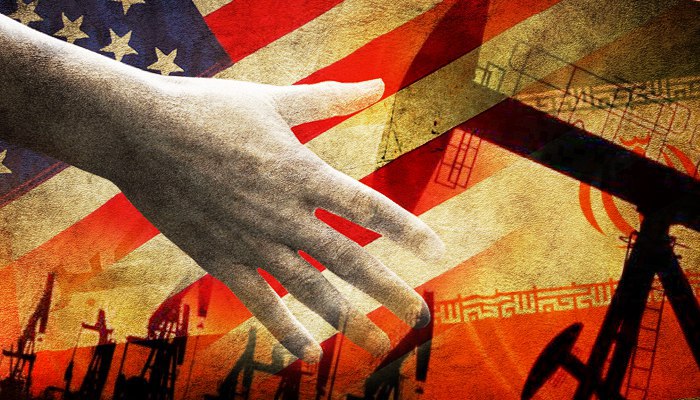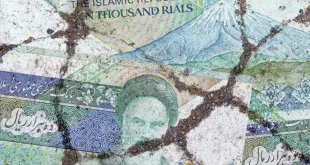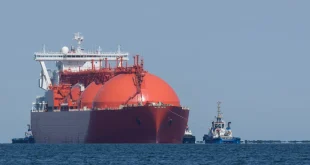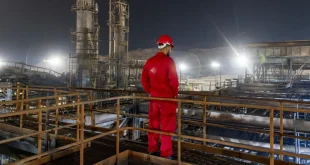Major energy producing countries are using energy exports to increase political influence in consumer countries. Energy exports are one of the most important ways to create interdependence as well as stability and security in the region. Iran ranks second in the world’s gas reserves, but domestic gas consumption increased sharply in the cold seasons of the year, in addition, at times, under the pretext of cutting off export repairs, gas production in Iran, sanctions, and lack of capital and technology are insufficient.
IRAN-IRAQ NATURAL GAS AGREEMENT
Despite its enormous energy resources, Iraq relies on imported Iranian gas and uses Iranian imported gas to generate electricity, while also being a major purchaser of electricity from Iran. Iraq uses about 40% of the gas imported from Iran to generate electricity at thermal power plants, and imports about 1400 MW of electricity from Iran to offset the shortage. Iran’s gas export agreement with Iraq was signed by 2009 and two years later, Iraq joined the Iranian gas customers’ jirga, a proprietary tablet customer, who seemed unlikely to give up Iranian gas despite the pressure from the US.
Iran exported gas to Iraq from the two provinces of Baghdad and Basra, which, under a contract signed between the two countries, has pledged to supply between 20 and 25 million cubic meters of gas per day to fuel Baghdad’s Al-Mansoura and Al-Sadr power plants., however, that the deal would increase Iran’s gas exports to about 5 million cubic meters on hot days. In Year 2014 The second Iranian gas export contract is signed in Basra, Iraq. The contract was postponed for several reasons, including security issues in Iraq and the lack of open LCs in Iraq until June 5, 2011, with a total volume of approximately seven million cubic meters per day.
US WAIVER TO IRAQ TO IMPORT ENERGY FROM IRAN
By summer 2018, some Iraqi cities had witnessed protests the central government because of power cuts stemming from the power cuts in power plants and the interruption of Iran’s electricity exports. Perhaps one of the reasons for the renewal of waiver for Iran’s electricity and gas imports this summer is the concern of Iraqi officials regarding the shortage of electricity in the warmer months of the month, when electricity consumption in Iraqi cities rises sharply.
In mid-October of 2019, the US government extended Iraq’s 90-day deadline for Iran’s gas and electricity imports. The actual amount of Iranian gas exports to Iraq in year 2018 was about 13.1 million cubic meters, although some Iraqi officials had previously stated that the amount of gas imported from Iran was 28 million cubic meters per day. Statistics show that Iran has exported an average of 38.7 million cubic meters of gas per year on average. Compared to the previous year, this figure was up by 4.4%.
The Iraqi waiver ends almost a month later, on February 17th 2020, and given the continued pressure of the Trump administration’s maximum pressure policy on Iran, it seems likely that the United States will not extend the exemption, in which case Iran’s political influence is in first place. The region, and especially Iraq, is shrinking. In other words, energy exports enable energy-producing countries to play a greater role in the policy of purchasing countries by exporting energy.
Iran continues to pursue political and security goals rather than economic ones by continuing to export energy to Iraq since as previously mentioned, Iran has repeatedly voiced its objections to the payment of Iran, but to date, no specific formula has been laid down for Iraqi officials to pay their debts.If Trump’s maximum pressure policy will force Iraq’s to stop importing electricity and gas from Iran, Tehran will lose both its second export market after Turkey and Iran’s political and security influence in Iraq is somewhat reduced.
IRAQ’S DEBT TO IRAN OVER ELECTRICITY AND GAS IMPORTS
According to Iranian Oil Minister, Bijan Zanganeh, Iraq’s debt to Iran for previous gas and electricity purchases is about $2 billion. Last July, AFP quoted Iraqi officials as saying it had resolved the problem of paying Iraq’s debt to Iran. Iraq has developed a multipurpose financial mechanism to allow Iraq to buy gas and electricity imported from Iran by paying Iraqi dinars, and Iran is using the money to buy humanitarian goods, AFP reported.
Iranian officials have not yet officially commented on the effectiveness of the system. Despite not resolving Iraq’s debt to Iran, Iranian officials have repeatedly agreed to increase energy exports to Iraq. Energy exports could continue Iran’s political presence and influence in Iraq, and it is important for Iranian officials to know how to get Iraq’s debt at a later stage.Given Iraq’s difficulty in supplying electricity from domestic plants, it appears to require electricity and gas imports from Iran in the short term.
However, given the recent sanctions against Iran and the policy of maximum pressure, the likelihood of Iraq’s waiver for energy imports from Iran will not be extended.
ZANGANEH CALLS ON THE MINISTRY OF ENERGY TO CUT ELECTRICITY EXPORTS
The Oil Minster, Zanganeh stated that the plan in supplying gas was to initially export domestic gas, and then general gas from small and major petrochemicals, and added that top priority was given to power plants. It should be ensured that they are power plants because they have a second fuel. At present, plants use 170 million cubic meters or liters of fuel, 70 million cubic meters of natural gas and the rest is liquid fuel,” he said, and added, “Given the increasing consumption of gas, especially in the domestic sector, we have urged power plants not only to increase exports but also to reduce them.”
INCREASING US PRESSURE ON IRAQ TO SUPPLY ENERGY FROM DOMESTIC SOURCES
Seeking maximum pressure policy on Iran, the Trump administration seeks to reduce any kind of Iranian energy exports and reduce the dependence of neighboring countries on Iran’s energy resources. While traveling to Iraq, in December 2018, US former, Secretary of Energy Rick Perry explicitly urged Baghdad to reduce the dependence on Iranian energy resources to provide conditions for US companies to invest in its energy infrastructure. According to Perry, Iraq can move towards full energy independence by reducing its dependence on foreign energy sources.
DECLINE IN GAS EXPORTS TO IRAQ DUE TO TECHNICAL DIFFICULTIES
“We did not have any export problems due to the increase in gas consumption but due to technical reasons export to Iraq has decreased but we have no problems exporting to Turkey,” the Oil Minister, Zanganeh, said. He also said that Iraq does not pay Iran for the gas it receives from Iraq. The Trade Bank of Iraq which has been responsible for delivering money to the Islamic Republic since the announcement of US exemptions for Iran’s gas and electricity imports, says the bank will halt financial transfers between Iraq and Iran if the United States does not extend the exemptions next month.
Failure to extend Iraq’s exemptions for Iran’s gas and electricity purchases could be a challenge for Iraq. A spokesman for the Iraqi Ministry of Electricity has recently announced that Iran cut gas deliveries down to 4 million cubic meters per day and that its electricity production fell. It has fallen from 19.000 megawatts to 14,000 megawatts.
Iran has a contract to export 50 million cubic meters of gas to Iraq per day; however, it only delivers half of this amount even in the hot seasons. Iraq uses Iranian gas mainly as fuel for electric power plants. Reports indicate that Iran has been forced to cut its gas exports to Iraq in recent weeks as domestic gas consumption soars. Iran also supplies electricity directly to Iraq. Electricity exports to Iraq have also come under criticism Last summer, Iran cut electricity supplies to Iraq due to a lack of domestic grid.
It is claimed that despite debt default, Iran intends to continue exporting energy to Iraq for political and economic reasons. Iran’s export cuts to Iraq provide Saudi Arabia with the opportunity to expand its presence in Iraq’s energy market under the pretext of investing in building a 5-megawatt solar power plant to reduce Iran’s long-term share in Iraq’s energy market, and to achieve its political goals in Iraq as well. Saudi Arabia offered to sell electricity generated by the plant for a quarter of Iran’s export electricity to Iraq.
Iran intends to play an active role in post-ISIL Iraq reconstruction, but Iran’s presence at every level in Iraq is not a pleasant thing for the United States. Some political analysts believe that the withdrawal of US forces from Iraq increased Iran’s political influence in Iraq. Iran’s active presence in all political, economic, and military sectors in Iraq be a lever of pressure or a trump card against the United States.
The protests that have taken place in recent weeks against the presence of Iranian or American forces by Iraqi people indicate that several Iraqis do not want foreign troops in the country. The United States is unlikely to agree to an extension Iraqi waiver for energy supplies from Iran like in the past 15 months. In any case, Iran and Iraq have not yet reached a basic agreement on a formula to pay off Iraq’s debt. Iran is losing its regional energy market.
ran has no major export destination for natural gas except Turkey and Iraq. It seems that the problem of sanctions against the Iranian energy industry will not be resolved, and Iran cannot solve its problems with the US regarding its regional policy and other issues. Reducing Iran’s share of the regional energy market would mean both lower foreign exchange earnings and lower Iranian influence in the region. Opportunities for Iran to play an active role in regional and global energy equations are rapidly diminishing.





